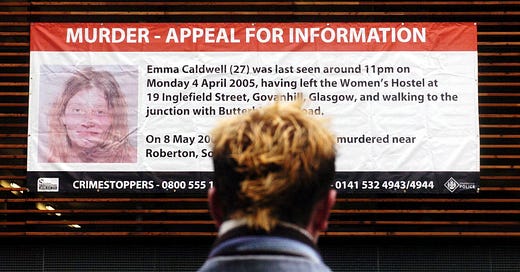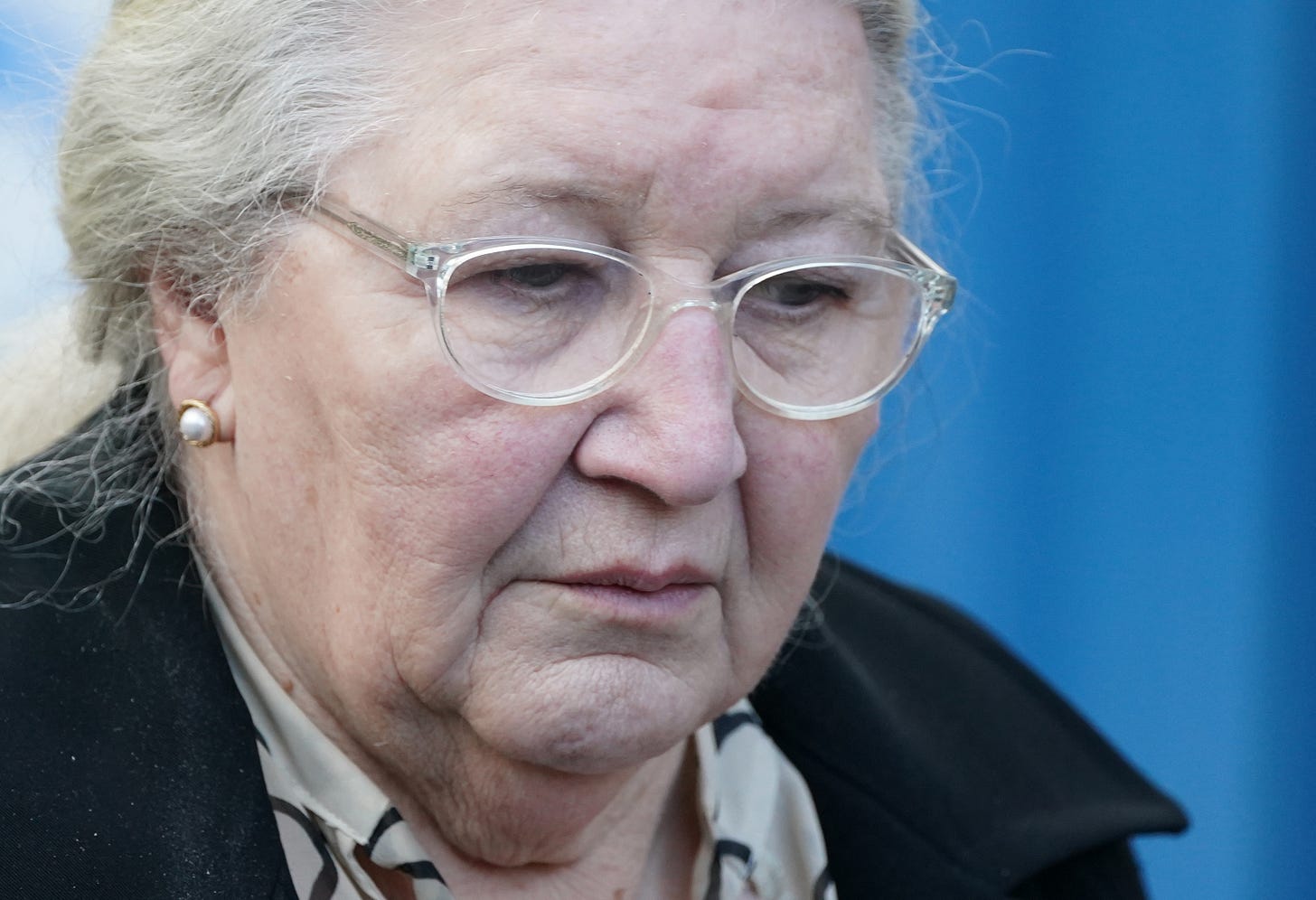How did the Guardian Newspaper end up referring to paid rape as 'sex work'?
The murder of Emma Caldwell, and how the media uses sanitised language to describe horrendous abuse of women and girls
From, 1999, and very likely before then, Iain Packer, now aged 51, was raping and abusing the most of vulnerable women, mainly those prostituted on the streets of Glasgow, with impunity. In 2005, he raped and murdered Emma Caldwell, And this week he has been convicted of that crime, plus 20 other violent and sexual offences towards other women.
You’ve probably read about this case, if not over the years, but in the reports of the trial and subsequent conviction. Packer was a prolific punter who routinely paid for sex with problematic drug using women, many of whom were homeless, all of them desperate and lacking in choice.
Sex buyers are violent and abusive, or they wouldn’t pay to access the inside of a woman’s body who is not remotely interested in sex with him were it not for the cash. Parker was one of the most horrific types, and described as a “very violent, aggressive, and dangerous man.” The prostituted woman that were unfortunate enough to be used by him said that he did not like the word ‘no’ and wanted to be in control.
The police spectacularly failed both Emma and the other women he targeted and harmed.
Margaret Caldwell, Emma’s mother
They didn’t listen to the women, considering them to be unreliable witnesses.
This is plain misogyny.
Additionally, use of the language in various press reports is troubling. Why are the women referred to as “sex workers”? Is being abused by men really a “job”? and why has the Guardian newspaper led with such normalising and sanitising language for so long?
I wrote to the readers’ editor about this issue last year, and have posted my email below. I hope it speaks for itself.
Rest in peace, Emma, you deserved so much better.
Wed, 14 Jun 2023 - my email to the Readers’ Editor
I must complain, in the strongest possible terms, about the tag ‘sex work’ to categorise the obituary of Irene Ivison, which I wrote.
(Read my obituary of Irene Iveson here)
The Guardian has been in trouble previously for its cavalier use of the term, when, for example, a reporter described children as ‘sex workers’, who were not only under the age of consent, but had also been trafficked.
‘Sex work‘ is an ideological term. Sex trade survivors, as well as others campaigning from a feminist standpoint avoid it like the plague because it normalises the abuse of women and girls.
It is obviously the Guardian's decision to use this term, but the idea that it categorises an obituary of a woman who campaigned tirelessly for an end to commercial sexual exploitation is insulting and disrespectful.
Ivison's daughter was pimped from the age of 14 and subsequently murdered by a sex buyer aged 17. Ivison campaigned to educate people about the harms of prostitution.
The use of 'sex work' in this instance is an example of how blinkered liberal institutions and publications are when it comes to a blanket use of this term. It is wholly inappropriate, and I am asking if you will please consider removing it and using the term prostitution instead?
Best wishes, Julie Bindel







Julie Bindel is a fucking legend. I read the Guardian for 30 years; I don't even recognise them now.
Beautiful piece. Thank you for holding the Guardian to account, always a pleasure! Horribly deceptive term, that nobody is proud of, and would they ever be? If desperation wasn't in play. Disgusted to see Sky News using it today, as they delivered the case update and police apology! Thank you, Julie. Rest in peace, Emma.